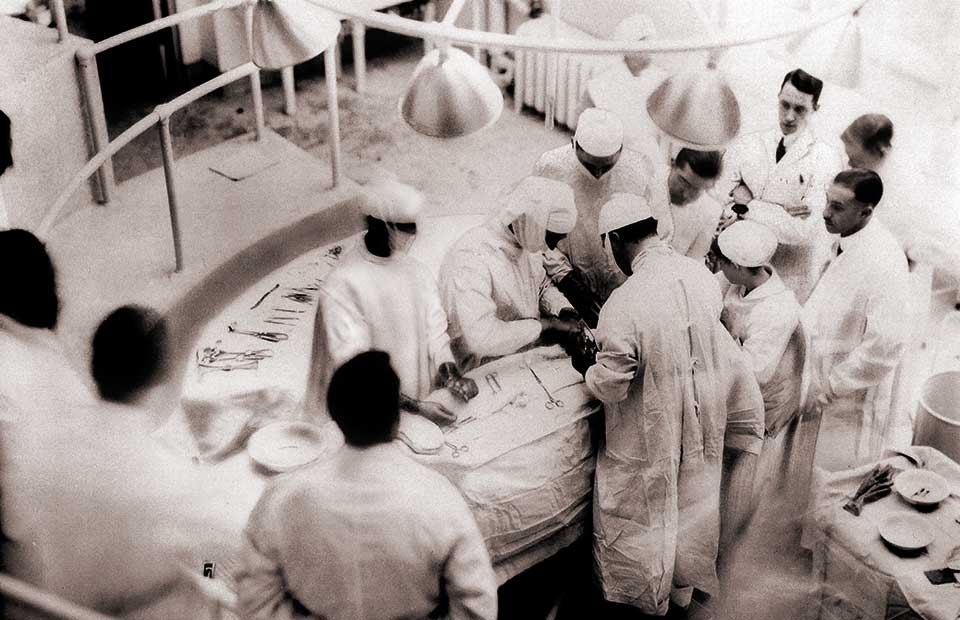
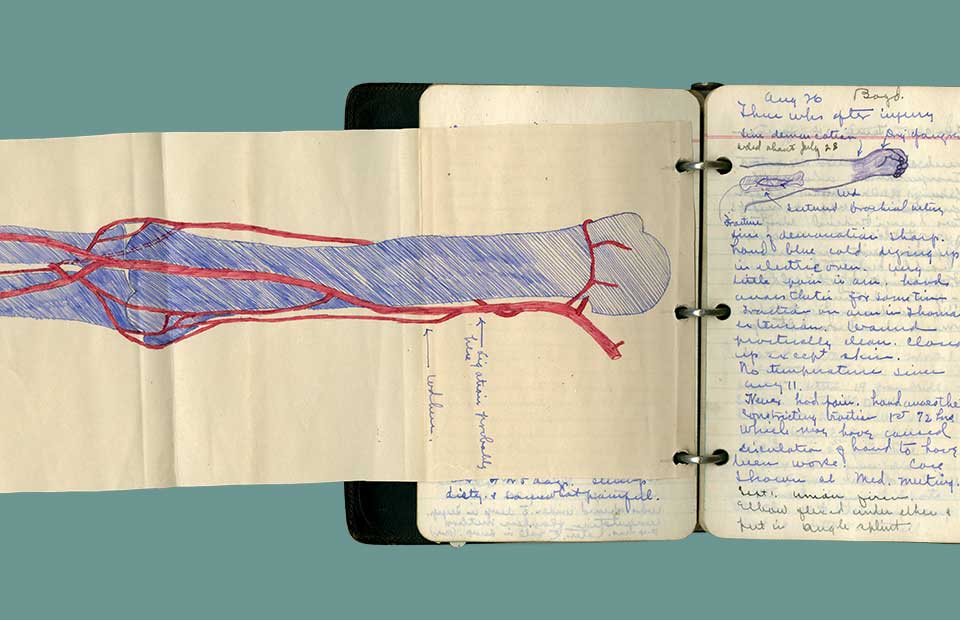
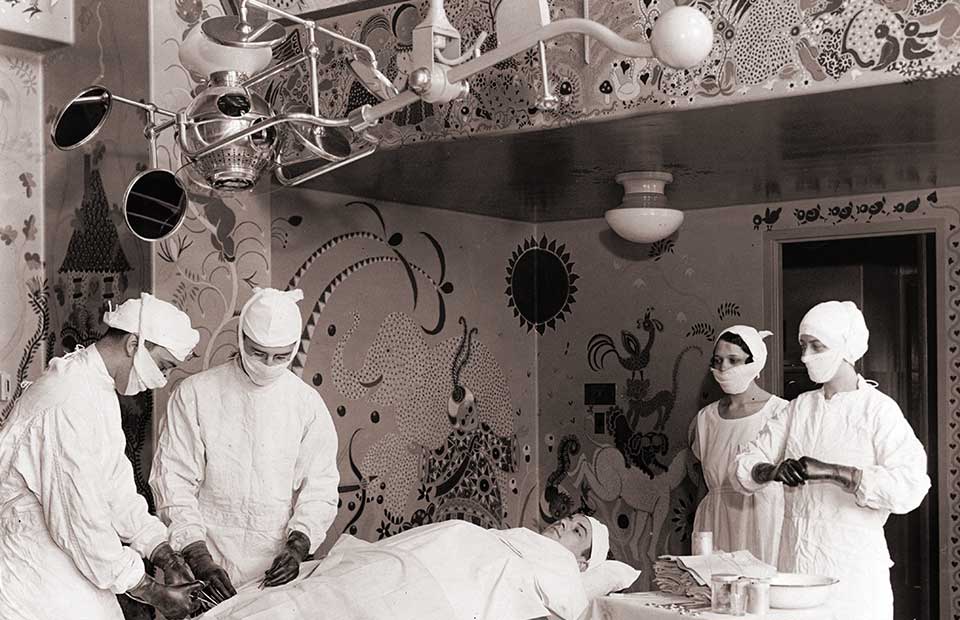
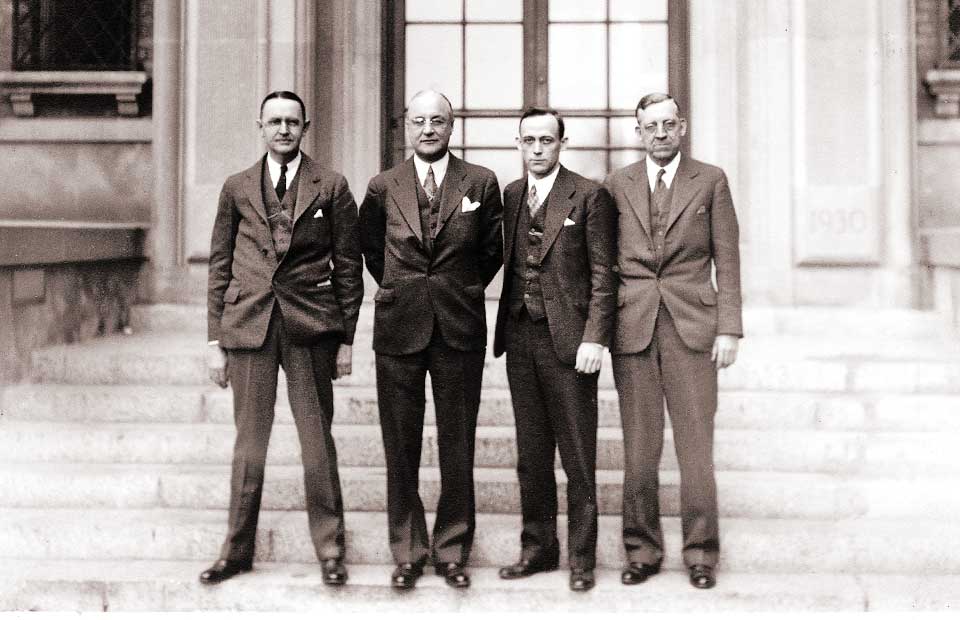
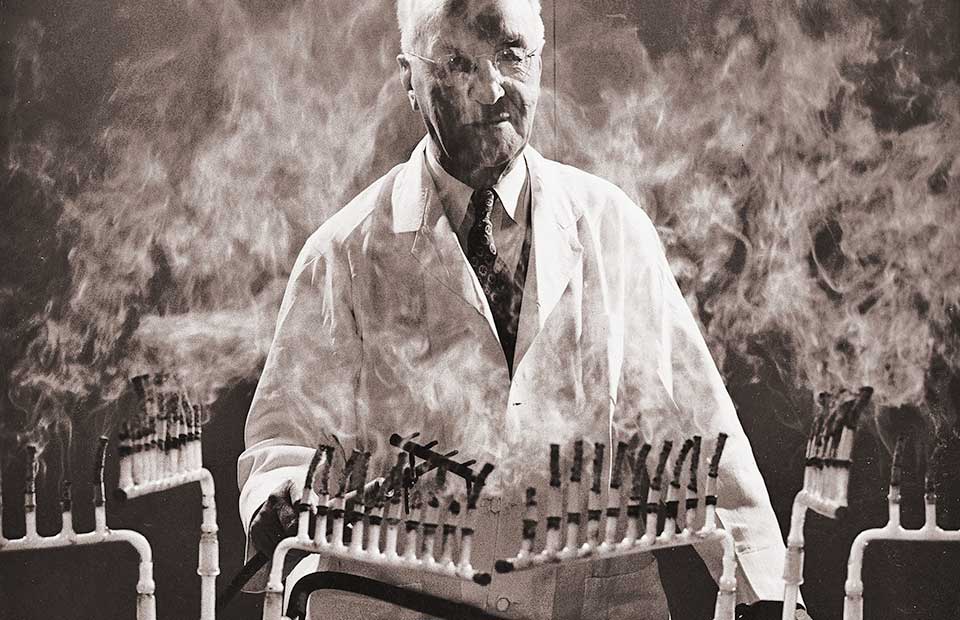
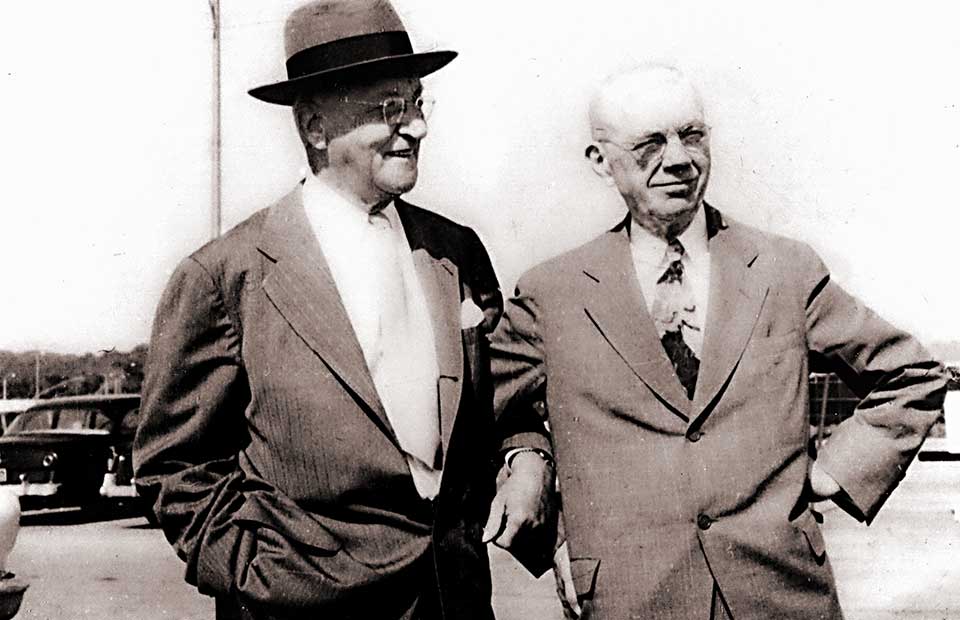
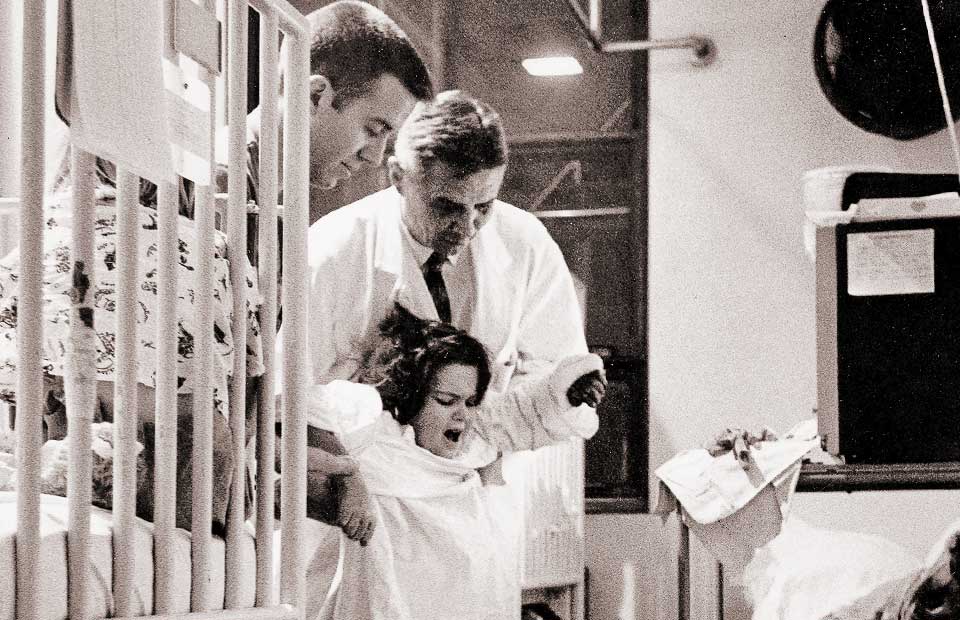
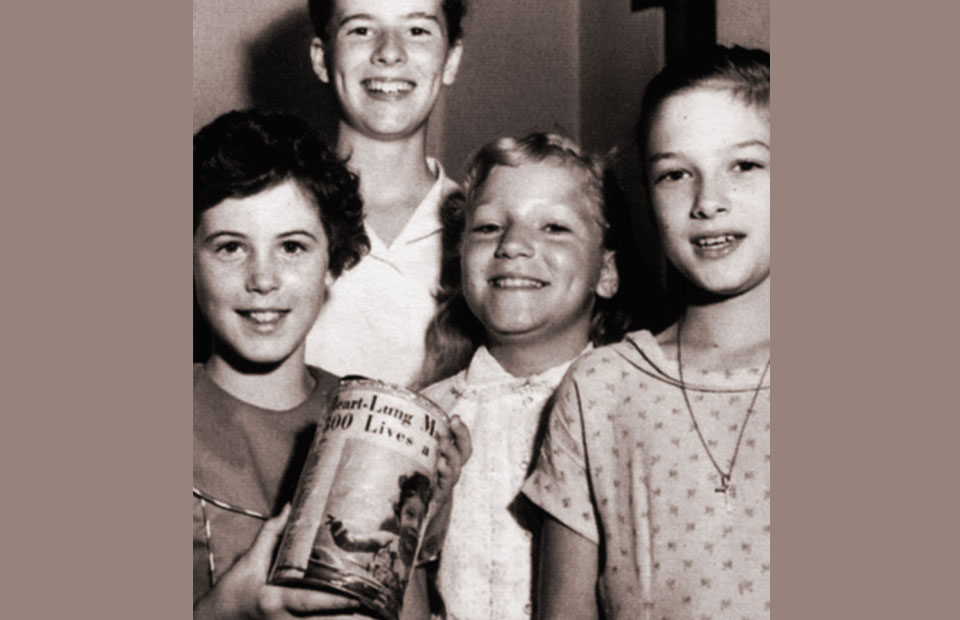
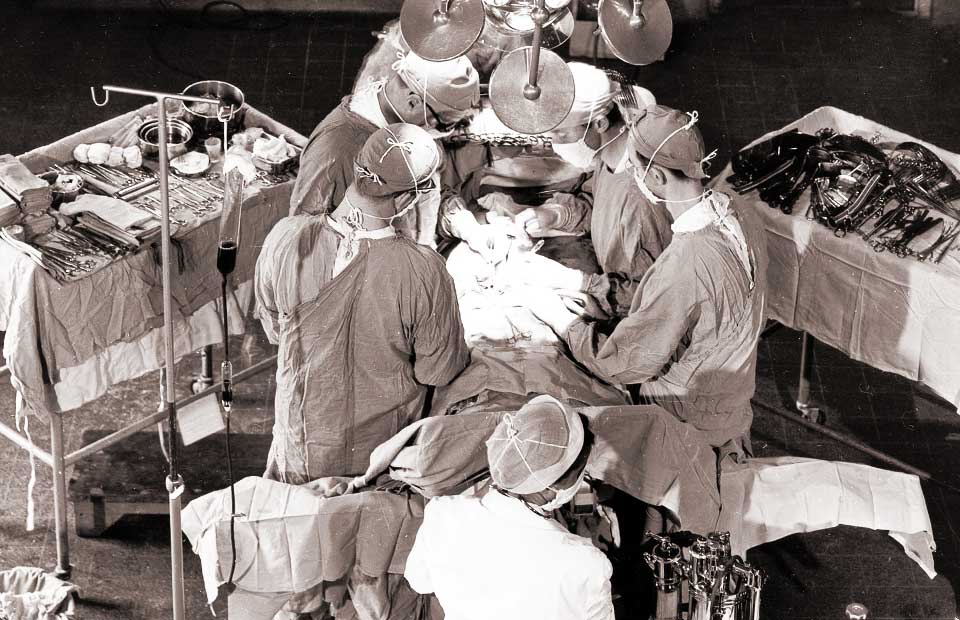
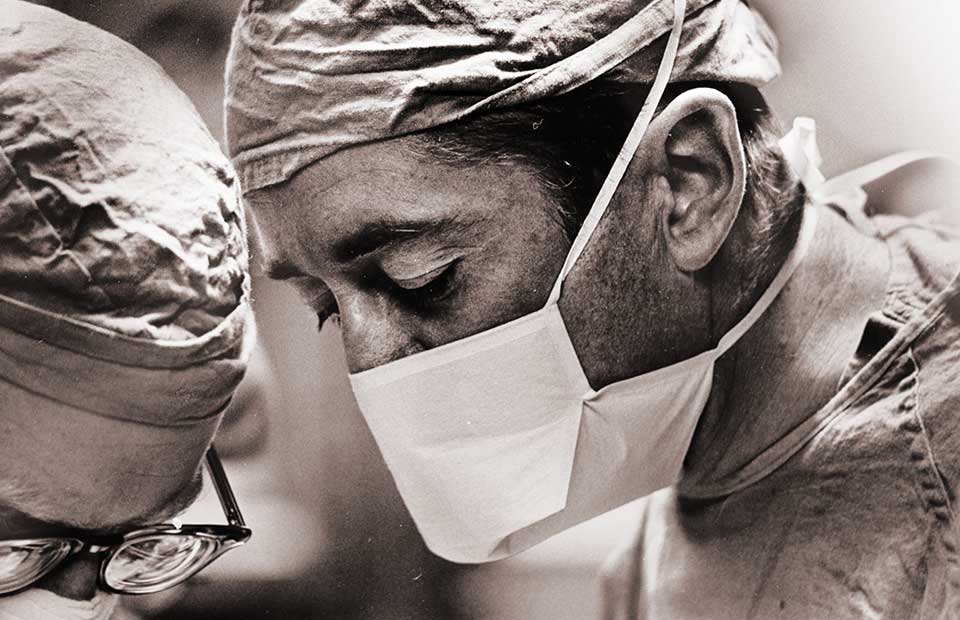
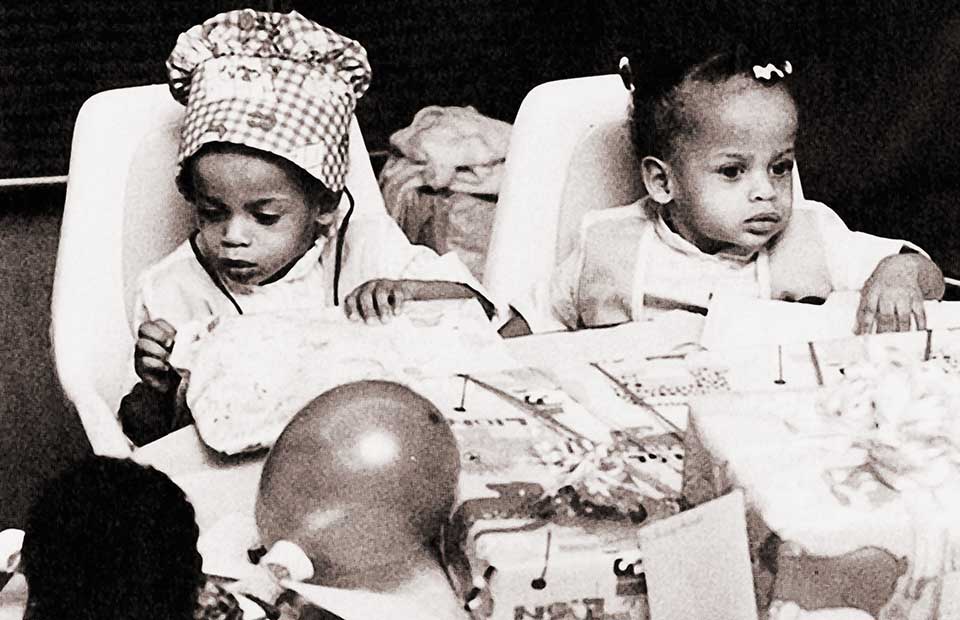
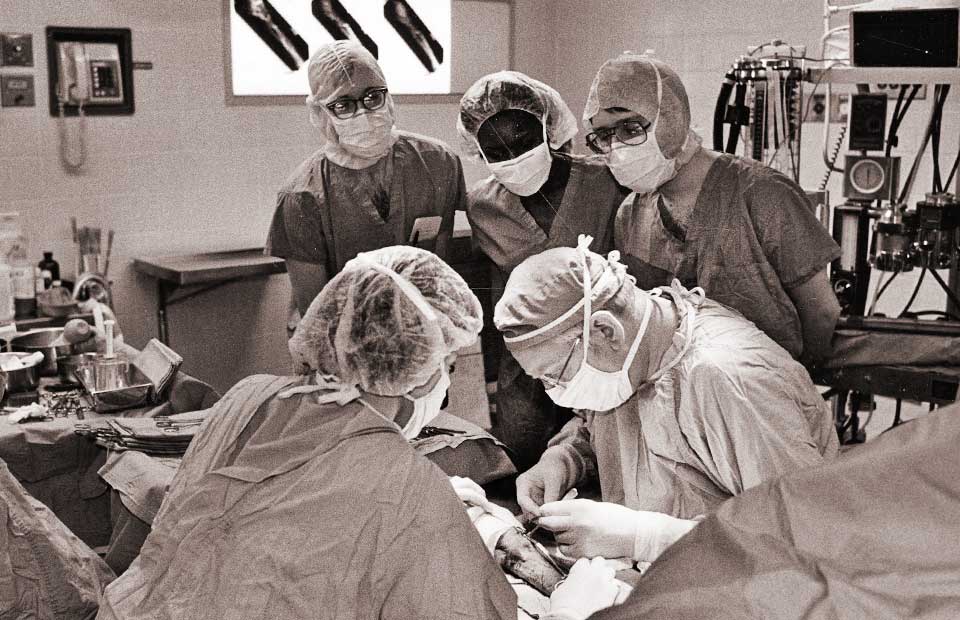
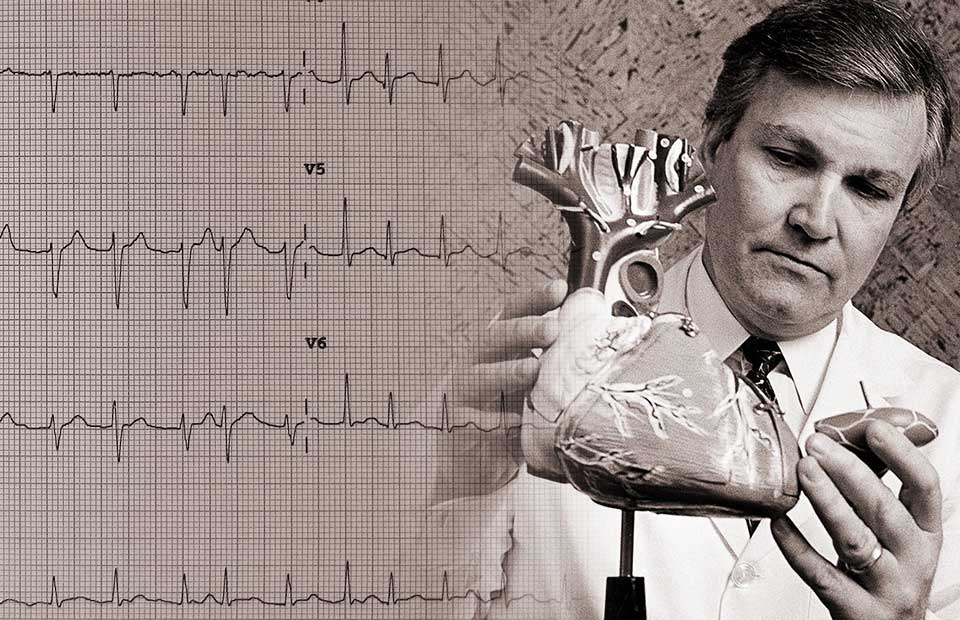
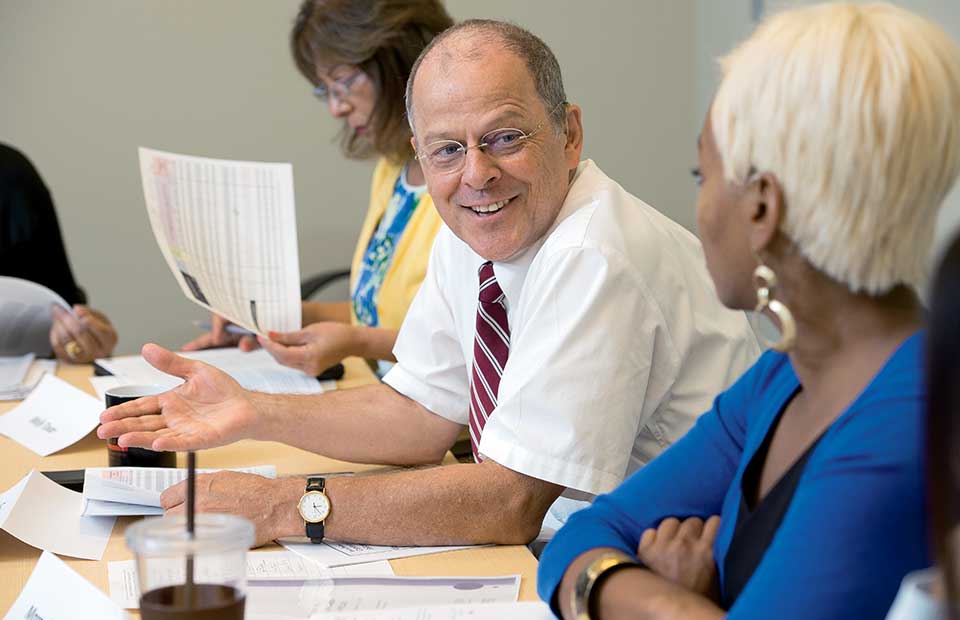
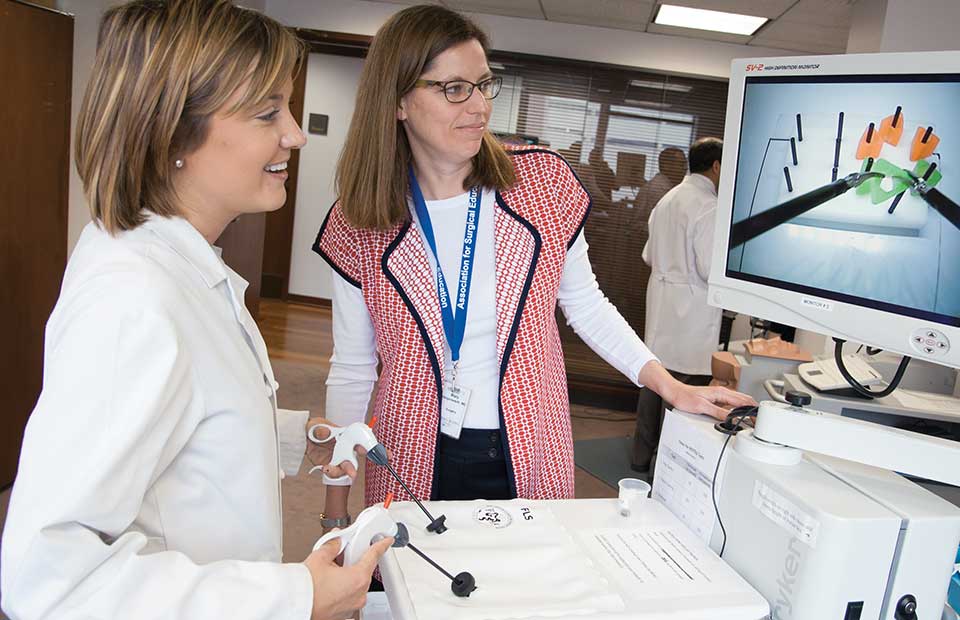
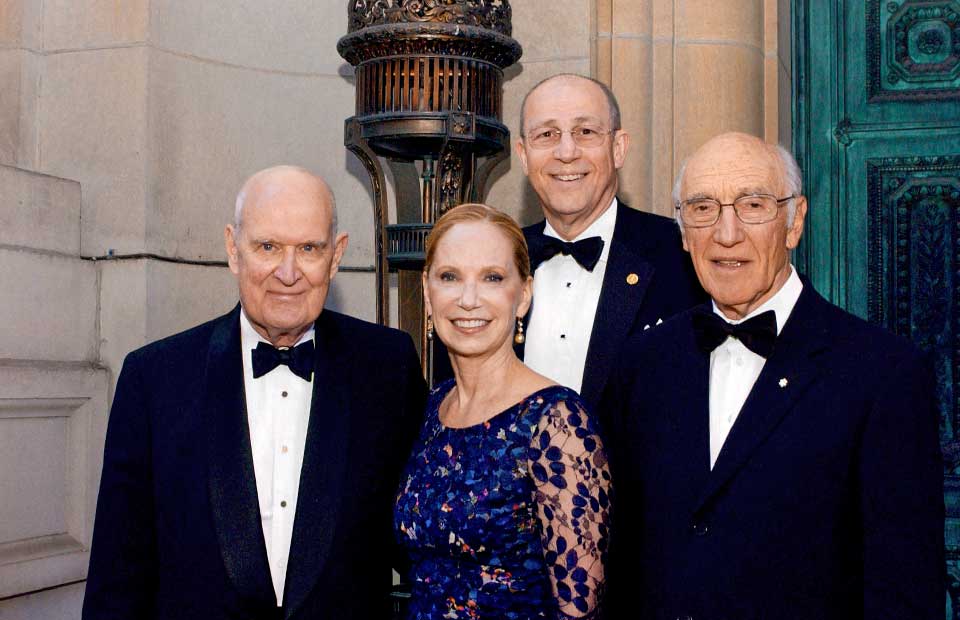
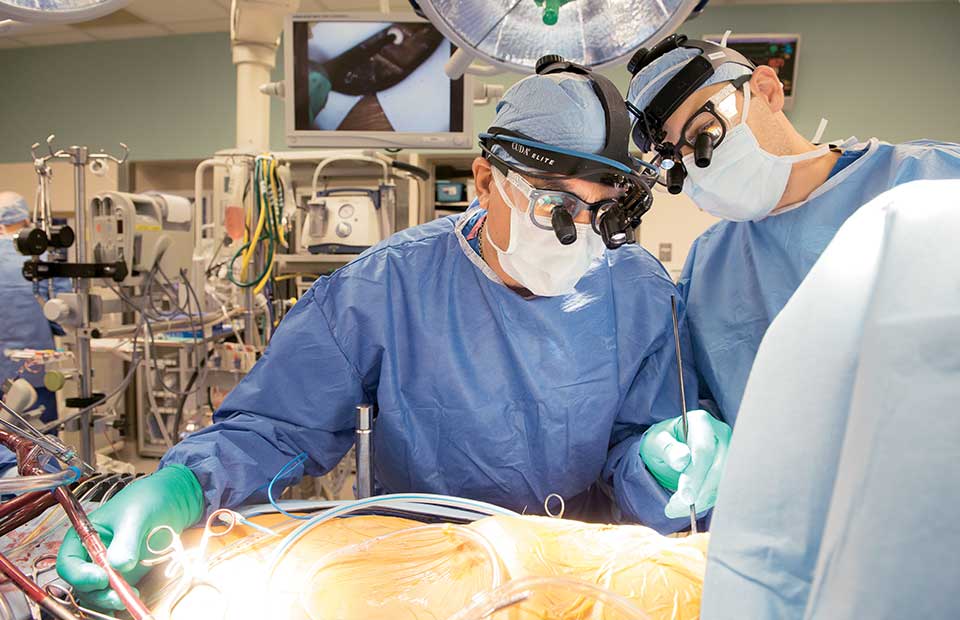
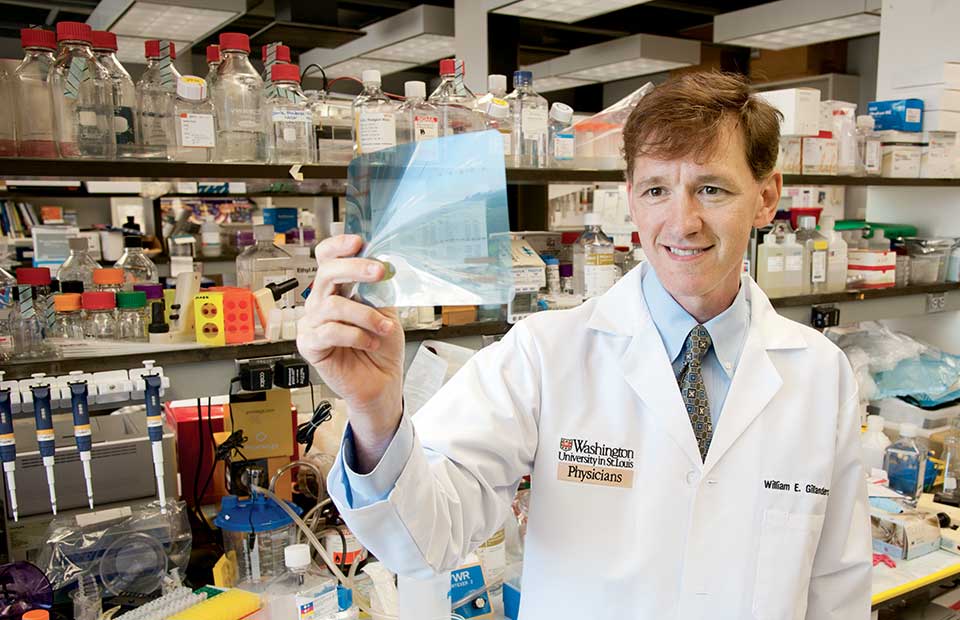
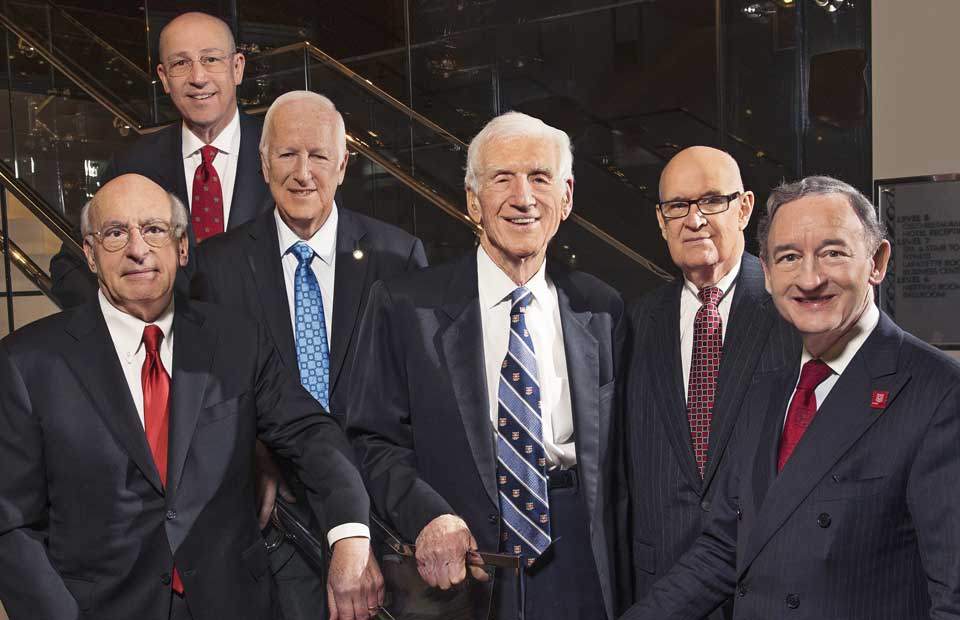
THE BIG PICTURE
100 years of surgery
Celebrating a century of leadership and innovation
Material excerpted from A Surgical Department of Distinction: 100 Years of Surgery at Washington University School of Medicine, by Candace O’Connor:
The Department of Surgery was formed at a time when the Washington University Medical Department was undergoing transformation into a modern medical school with full-time faculty, adequate endowment, laboratories and associated teaching hospitals. In 1914, Barnes Hospital opened and surgeon-in-chief Fred Murphy, MD, performed the first surgery there. Later, when the U.S. entered World War I, Murphy led a team of Washington University surgeons and nurses that treated wounded soldiers at a tent hospital in France.
The department’s first 100 years is a story of strong leadership and many contributions to education, scientific advancement and vastly expanding the scope of human disease treated by surgery. Evarts Graham, MD, the first full-time chairman and Bixby Professor of Surgery, broke ground in gall bladder imaging, performed the first successful lung removal and conducted research linking smoking to lung cancer. His achievements set a high bar for his successors.
Subsequent chairman – Carl Moyer, MD, Walter Ballinger II, MD, Samuel Wells Jr., MD, and Timothy Eberlein, MD – also made major contributions to research and surgical education and led other surgeons and researchers who have reshaped treatment of heart arrhythmia, cancer, peripheral nerve injury and other medical conditions.
Today, the department has expanded its scope to prevent cancer, promote population health and improve access to health care in the community through its Division of Public Health Sciences, formed in 2010. The department’s 15 divisions and sections represent a broad spectrum of clinical specialties. Surgeons are leading trials of new technology and continue to introduce new surgical techniques. In education, faculty members are national leaders in shaping surgical curriculum, developing methods to better evaluate residents and early specialization.
Looking forward, Larry Shapiro, MD, executive vice chancellor for medical affairs and dean of the School of Medicine, said: “I suspect that the practice of surgery will continue to change and evolve, but as far into the future as I can see, we will always need surgeons. I don’t think they’ll be replaced with medical therapies or approaches; I don’t think they’ll be replaced by robots. We need gifted and talented surgeons, and I think we’ve been really fortunate that there is such a rich history of surgery here.”






